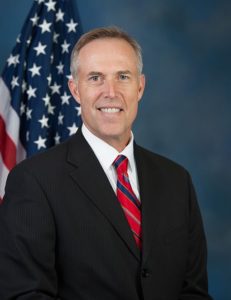On the Hill: Humanist Influence in Congress Growing
 Rep. Jared Huffman (D-CA)
Rep. Jared Huffman (D-CA) One of the most talked about impacts of the 2016 presidential election is the resurgence of the religious right in our nation’s capital. For years, this special interest group had been on the decline, which was perhaps best illustrated by the declining membership in the infamous Congressional Prayer Caucus. But with the elevation of Mike Pence to the vice presidency, the agenda of the religious right has received a major boost.
The impacts of this resurgence can be felt in various policy debates, ranging from the repeal of the Johnson Amendment, to same-sex marriage and women’s autonomy over their own bodies.
But while things might seem grim for those of us who believe religious overreach into public policy is a bad thing, hope remains. That’s because the number of humanists and other nontheists are growing in Congress, and these legislators are fighting back against religious extremism in government.
Today, Rep. Jared Huffman, a Democrat from California, came out as a humanist and a nontheist. Huffman, first elected to Congress in 2012 after serving for years in the California State Assembly, told the Washington Post that he was a humanist, and that “Like many people, I’ve struggled with questions of faith and religion for most of my life. While I don’t pretend to have all the answers, I am convinced that people of all religions, as well as the nonreligious, can work together to make a positive difference in the world.”
This is an extremely significant action by Huffman, as it not only gives humanists a better sense of representation in Congress, but also because he’s fighting back against the outdated idea that all politicians must be religious in order to win high office. Of course, this myth was busted years ago when Rep. Pete Stark, also of California, came out in 2007 as an atheist, and shortly thereafter as a humanist. Likewise, Rep. Jamie Raskin of Maryland, who was just elected last year, identifies as both a humanist and a Jew, and Rep. Kyrsten Sinema, an Arizona Democrat, has a religious affiliation of “none.”
All of this is to say that Congress is well on its way to achieving some degree of parity with the US religious landscape. While nearly a quarter of all Americans identify as either nontheistic or religiously unaffiliated, Congress has overwhelmingly been a religious, and Christian, institution.
So while things might currently be a bit rough for secularists and nontheists with the overtly religious Trump administration in power, it’s important for the humanist community to remain hopeful and to support good humanist politicians like Huffman and Raskin, as well as unaffiliated politicians like Sinema. After all, the best way to fight back against religious extremism in our federal government is to make sure that we have elected officials who approach the issue of separation of church and state from a humanist perspective.
